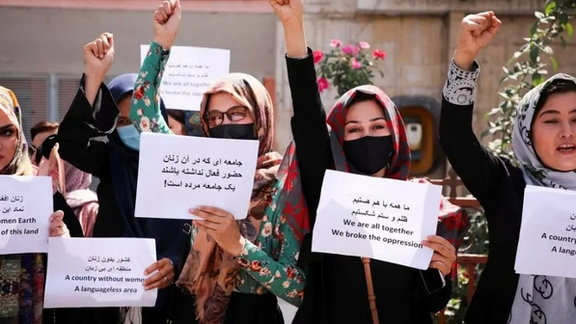The letter claims that the agreement, signed during Trump’s first presidency in 2020, has failed to deliver peace and has instead intensified the ongoing crisis in Afghanistan.
The Doha Agreement facilitated the withdrawal of U.S. troops from Afghanistan, which subsequently led to the collapse of the Afghan government and the Taliban’s return to power. In their statement, 25 organisations advocating for women’s and human rights criticised the agreement, stating that it had exacerbated violence, fostered extremism, and contributed to the export of terrorism to neighbouring countries and the wider world.
The activists have called upon the incoming U.S. administration to increase diplomatic pressure on the Taliban and to prosecute its leaders in international courts for “war crimes” and widespread human rights abuses.
The letter highlights the Taliban’s oppressive policies, which have stripped Afghan women and girls of fundamental rights, including access to education, employment, and personal freedoms. It also notes a marked increase in reports of torture, beatings, forced marriages, and the detention of women protesting against the regime’s restrictive laws.
The activists further accuse the Taliban of perpetrating unlawful killings, persecuting ethnic and religious minorities, and carrying out enforced disappearances. They argue that the Doha Agreement and three years of Taliban rule have precipitated a humanitarian crisis, forcing many Afghans into dire circumstances and triggering waves of displacement.
The letter warns of the Taliban’s role in narcotics production and trafficking, alleging that the group relies on drug revenues to sustain its regime. This, the activists claim, poses a significant threat to global public health and the economies of the region.
Additionally, they cautioned that the worsening humanitarian crisis and mass displacements could lead to increased migration to neighbouring countries and Europe, creating new political and humanitarian challenges.
Donald Trump, during a past debate with Kamala Harris, stated that the Doha Agreement had been terminated under his administration due to the Taliban’s failure to adhere to its commitments. “The Doha Agreement was terminated by us because they [the Taliban] did not fulfil their obligations,” he said.
Despite this, key provisions of the agreement — particularly regarding intra-Afghan dialogue and the formation of an inclusive national government — remain unimplemented.
Some former U.S. and Afghan officials have criticised the Doha Agreement, asserting that it weakened the Afghan government and paved the way for its eventual collapse. Zalmay Khalilzad, the former U.S. Special Representative for Afghanistan who signed the agreement with Mullah Baradar, the Taliban’s Deputy Prime Minister for Economic Affairs, recently commented that Trump’s return to the White House could present an opportunity for the agreement’s full implementation.
The open letter serves as a stark reminder of the ongoing struggles faced by the Afghan people, particularly women, under Taliban rule, and it calls for renewed international attention and action to address the worsening crisis.
